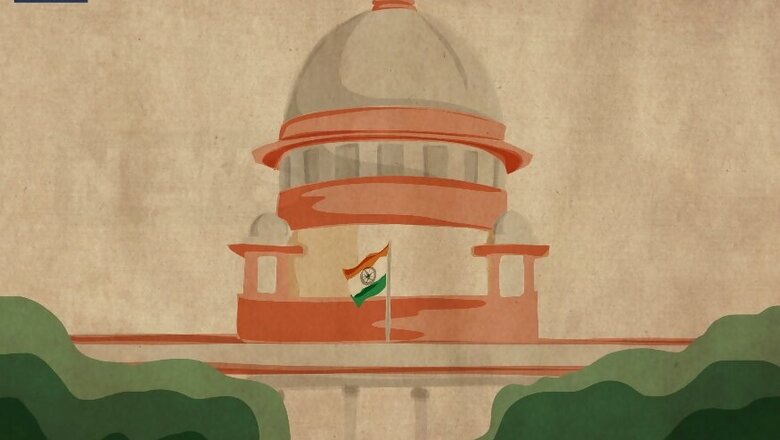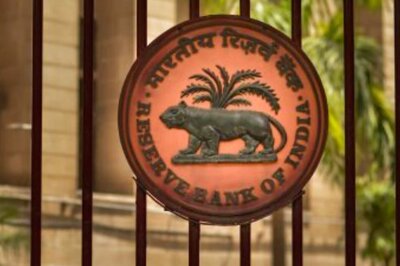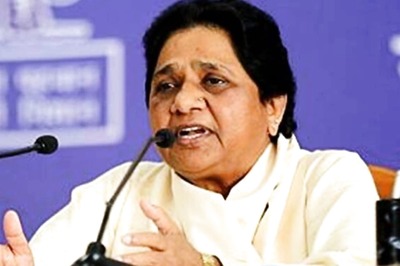
views
This Friday, the Supreme Court of India finally confirmed that it would step in to judge the constitutionality of the tender issued by the Union Ministry of Information and Broadcasting to create and operate a social media monitoring hub.
A three-judge bench of the Supreme Court accepted that the Union government’s moves had the potential to impact Indian citizens’ fundamental rights to free speech, liberty and privacy by ‘surveilling’ all of their online activity. The bench hearing the case issued notice to the Union government, calling for them to explain their position in two weeks while orally observing the potential for this project towards “creating a surveillance state”.
The Social Media Monitoring Hub project tender documents essentially revealed that the Union Ministry of Information and Broadcasting wanted help from the private sector to collect, track and store all online social communications by Indians as well as respond and influence such interactions.
This wasn’t just about public social media posts. The tender specifically included within its scope of collection and analysis communications via instant messaging services such as WhatsApp as well as email-based communications channels, without making it clear how the Information and Broadcasting Ministry would be in a position to intercept, decrypt and provide these communication streams.
Due to Friday’s order of the Supreme Court bench directing that notice be served, the Union government will now have to come and clearly explain to the Supreme Court the rationale, authority and ultimate purpose for this project. This is something that the Union government has so far refused to do.
The Ministry of Information and Broadcasting held no discussion with stakeholders and the general public on why it wanted to undertake this project or respond to the specific concerns flagged to it (including a legal notice filed by the Internet Freedom Foundation in June) about how its actions were potentially harmful to fundamental rights and illegal under Indian law.
It is settled in Indian law that any surveillance actions by government agencies in India do impact the fundamental right to privacy, and consequently now have to be tested against the standards articulated by the Supreme Court in its landmark Puttaswamy judgment that was laid down a year ago. A key part of those tests is whether any interference with citizen’s privacy is “necessary and proportionate”, along with other additional standards laid down by our judges. The blanket collection and analysis of all social media posts and activity of Indian citizens would clearly not be necessary and proportionate — it instead clearly is blanket, untargeted, mass surveillance.
It is possible that some may argue that a proposed hub such as this would only track, collect and analyse publicly posted social media updates. This despite the fact, of course, that the tender placed a focus on seeking access to data from encrypted instant messaging services such as WhatsApp as well as email communications.
But even if one was to ignore that part of the tender, we must recognise that the mass collection and analysis of material publicly posted by government agencies does indeed transform such data into “protected information” under the internationally understood legal standards for the Necessary and Proportionate Principles.
This means that it is clearly surveillance, which requires it to be authorised by law subject to several substantive limitations and procedural safeguards —none of which appear to be in place for this project from the Ministry of Information and Broadcasting.
What it most troubling is that not only is the Union Government rushing ahead with this project with no clarity on its actual, full purpose or legal authority, it is doing so with no desire to place equal importance on devoting its time and public mandate in strengthening the legal framework to oversee surveillance and protect citizen privacy.
Proposals to pass a comprehensive nationally applicable privacy law have been pending since 2011 — despite leaks indicating that draft legislative text had been prepared and stakeholders in and outside government acknowledging the need to modernize and tighten Indian surveillance law.
While much of this will now be driven by what arguments are brought before and debated in court, we must remember that this is a problem that the executive branch of our Union government can solve. The Ministry of Information and Broadcasting can more openly engage with critics and those expressing concerns on this, including by making a start by pausing and reconsidering this tender. The government as a whole need to do more, both in terms of speed as well as with regards to its willingness to listen, in passing a strong privacy law. A law that listens to citizen driven suggestions on how legal measures can further control surveillance practices and put in place stronger data protection regulatory measures.
(The author is a lawyer, Policy Director at Access Now and co-founder of the Internet Freedom Foundation. Views are personal)



















Comments
0 comment